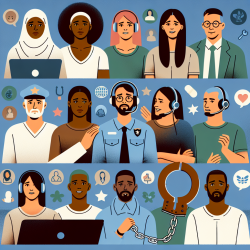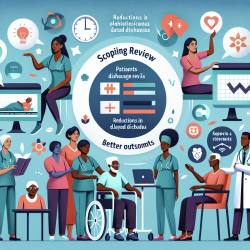Empowering Educators: Transforming Skills Through Online Learning

The advent of online learning has revolutionized the way educators can access professional development. According to the research article "Comparing Efficacy of Online and In-Person Versions of a Training on U.S. Federal Wage and Hour, Child Labor Laws, and Hazardous Occupations Orders for Secondary School Professionals," online training can be just as effective, if not more so, than traditional in-person training.This study, conducted by the New Jersey Safe Schools Program, compared the efficacy of online and in-person training formats for secondary school professionals. The findings revealed that participants were highly satisfied with both formats, but online training offered several unique advantages.
Key Findings from the Research
The research highlighted several important outcomes:
- High Satisfaction Rates: Over 95% of participants in both formats recommended the course to colleagues.
- Meeting Course Objectives: 95% of online participants felt that the course objectives were completely met, compared to 83% of in-person participants.
- Flexibility and Convenience: The online format allowed participants to complete the course at their own pace, which was highly valued.
Implications for Practitioners
For practitioners in the field of special education and therapy services, these findings have significant implications:
- Flexibility: Online training allows you to manage your professional development around your schedule, making it easier to balance work and learning.
- Accessibility: With online courses, you can access high-quality training materials from anywhere, eliminating the need for travel.
- Enhanced Learning: The ability to revisit course materials and complete modules at your own pace can lead to better retention and understanding.
Encouraging Further Research
While this study provides strong evidence for the efficacy of online training, it's important to continue exploring how these methods can be improved and tailored to meet the needs of different learners. Here are some areas for further research:
- Long-Term Impact: Investigate the long-term retention of knowledge and skills gained through online training.
- Customization: Explore how personalized learning paths can enhance the effectiveness of online training.
- Engagement Strategies: Develop and test new strategies to increase participant engagement and interaction in online courses.
Conclusion
The research clearly indicates that online training is a viable and effective alternative to traditional in-person training. By embracing online learning, educators and therapists can enhance their skills, stay up-to-date with the latest regulations, and ultimately provide better support to their students.To read the original research paper, please follow this link:
Comparing Efficacy of Online and In-Person Versions of a Training on U.S. Federal Wage and Hour, Child Labor Laws, and Hazardous Occupations Orders for Secondary School Professionals.
Citation: Shendell, D. G., Apostolico, A. A., Milich, L. J., Patti, A. A., & Kelly, S. W. (2016). Comparing efficacy of online and in-person versions of a training on U.S. federal wage and hour, child labor laws, and hazardous occupations orders for secondary school professionals. Frontiers in Public Health, 4, 75. https://doi.org/10.3389/fpubh.2016.00075










